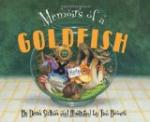Now the family that does not invade Europe at least every other summer is looked on as hopelessly old-fashioned. No clerk can find a job on the Rue de Rivoli or the Rue de la Paix unless he speaks fluently the dialect of the customers on whose trade his employer chiefly relies—those from Pennsylvania, New York and Illinois. The American no longer goes abroad for improvement, but to amuse himself. The college Freshman knows, at least by name, the latest beauty who haunts the Folies Bergeres, and his father probably has a refined and intimate familiarity with the special attractions of Ciro’s and the Trocadero.
I do not deny that we have learned valuable lessons from the Parisians. At any rate our cooking has vastly improved. Epicurus would have difficulty in choosing between the delights of New York and Paris—for, after all, New York is Paris and Paris is New York. The chef of yesterday at Voisin’s rules the kitchen of the Ritz-Carlton or the Plaza to-day; and he cannot have traveled much who does not find a dozen European acquaintances among the head waiters of Broadway. Not to know Paris nowadays is felt to be as great a humiliation as it was fifty years ago not to know one’s Bible.
Beyond the larger number of Americans who visit Paris for legitimate or semilegitimate purposes, there is a substantial fraction who go to do things they either cannot or dare not do at home. And as those who have not the time or the money to cross the Atlantic and who still itch for the boulevards must be kept contented, Broadway is turned into Montmartre. The result is that we cannot take our daughters to the theater without risking familiarizing them with vice in one form or another. I do not think I am overstating the situation when I say that it would be reasonably inferred from most of our so-called musical shows and farces that the natural, customary and excusable amusement of the modern man after working hours—whether the father of a family or a youth of twenty—is a promiscuous adventuring into sexual immorality.
I do not regard as particularly dangerous the vulgar French farce where papa is caught in some extraordinary and buffoonlike situation with the washerwoman. Safety lies in exaggeration. But it is a different matter with the ordinary Broadway show, where virtue is made—at least inferentially—the object of ridicule, and sexuality is the underlying purpose of the production. During the present New York theatrical season several plays have been already censored by the authorities, and either been taken off entirely or so altered as to be still within the bounds of legal pruriency.
Whether I am right in attributing it to the influence of the French music halls or not, it is the fact that the tone of our theatergoing public is essentially low. Boys and girls who are taken in their Christmas holidays to see plays at which their parents applaud questionable songs and suggestive dances, cannot be blamed for assuming that there is not one set of morals for the stage and another for ordinary social intercourse.




